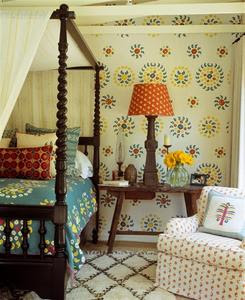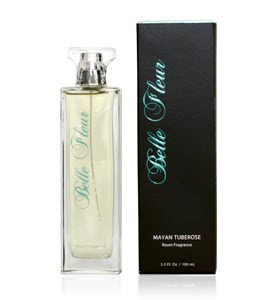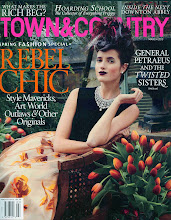For those of you that can remember, Kathryn Ireland, the LA-based designer, had a home accessories shop with her friend Amanda Pays in Santa Monica, CA . That was many moons ago, but she is a retailer at heart. After decorating and traveling for the past several years, the hankering for a store has returned. It has lead her to another kind of shop, the e-commerce kind. The Kathryn M. Ireland Store is now open online! British- by- way- of- LA interior designer and lifestyle guru Kathryn has finally made her fabric patterns and accessories available to all! Scoop up her bright globally-sourced fabric pillows, antique textile pillows, lampshades, her fabric sachets and furniture from her line. She is on a roll. Having just launched her newest book, Creating a Home, and snagging a prime retail space where Peter Dunham's shop was in LA's charmed Almont Yard, there are great things ahead for this effervescent Brit!
SOME OF THE GOODS TO CHECK OUT:
SOME OF THE GOODS TO CHECK OUT:

The Barley Twist Bed

Chair upholstered in antique suzani fabric has 6-8 week production lead time

An 18th Century French Sofa from the antiques selection

Photos Courtesy of Kathryn Ireland
A lampshade made from a new fabric
A lampshade made from a new fabric






.JPG)































































